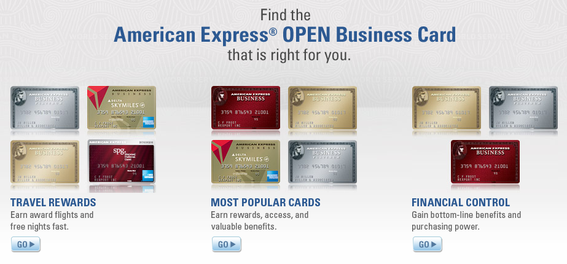Unhappy with your current business credit card? Cheer up. As a business owner you have many choices. But a card that is right for one business may not be advantageous for another. Cash flow, credit rating, and the amount of business travel can influence your choice of cards.
This is “Part 1” of a two-part series on selecting a credit card for your ecommerce business. In this installment, I’ll review the various terms, perks, penalties and provisions of typical business credit cards. In next week’s “Part 2” installment, I’ll address specific business credit card offers.
You need to compare the costs and the benefits and most importantly, read the fine print. Credit card issuers are eager to boost their small business clientele as this market is subject to fewer regulations than consumer cards, and can be more lucrative for the issuers.
Payment Methods
When considering credit cards, one major determinant should be your planned payment method. You need to decide whether you intend to carry a balance on your card or plan to pay off the entire balance at the end of each month. If you carry a balance, look for a card with a low interest rate. If you will be paying off the balance each month, you can get a card with zero interest but you will be required to pay an annual fee for both the primary cardholder and additional cardholders. These fees can be hefty, especially if there is more than one card, and can cost more than interest bearing cards. Some of these cards offer an introductory promotion that waives the fee for the first year.
Spending Caps vs. No Limits
Some small business credit cards have spending limits while others have no caps. If you anticipate putting large purchases on the card, a card with no limit may be a good choice. However, a full monthly payoff may apply, so be sure you have enough cash on hand to pay the entire amount.
Small Business Credit Card Perks
Credit card issuers offer a wide array of incentives. Select the perks that provide the benefits that best meet your business requirements.
- Cash Back Credit Cards. Cash back cards reward you for spending. For certain categories of purchases you get a varying percentage cash rebate.
- Frequent Flyer Mileage Credit Cards. If you and your employees do a good deal of traveling, a frequent-flyer-award credit card may be best. Major airlines partner with credit card issuers, so you earn frequent flyer miles whenever you use your business credit card. And a generous number of bonus miles is often available as a promotion when you sign up for a new card and make your first purchase.
- No Annual Credit Card Fees. To get you to sign up, some cards waive the fee for the first year. Others never have an annual fee, but you must have a top-notch credit rating to qualify. Also, no-annual-fee cards often have higher interest rates. This is a good choice if you pay your full balance every month.
- No Interest Balance Transfers. A zero-percent balance transfer can seem tempting. However, if you miss a payment, you can lose your interest-free terms and have to pay the full rate, which is usually quite high. Buried in the fine print is the fact that even if there is no interest, there is an upfront fee for a transfer, usually three percent of the amount or a minimum of five dollars, whichever is greater.
- Credit Cards for Employees. Most business credit cards will let you issue cards to employees. This feature allows you to track employee spending. Employees also like it because they can avoid having to put business expenses on their personal credit cards and ask for reimbursement later. You can limit how much each employee can charge.
- Expense Tracking. Many business credit cards allow you to categorize your expenses so the issuer can provide end-of-year spending reports. This streamlines the process of allocating expenditures when filing tax returns.
- Product discounts. Some cards allow you to earn and accrue points that can be redeemed for merchandise. Make sure the merchandise offering is relevant to your business and that the number of points required is not so high that it takes years to redeem the points.

American Express offers different cards, perks and benefits in its “Open” business card promotion.
Private-Label Credit Cards
Companies, universities, catalog suppliers, brands, and stores all offer business credit cards. Although the logos may say one thing, these private-label credit cards are affiliated with the major credit card companies and banks. However, the private-label card may offer more lenient credit qualifications and often have benefits tailored to their businesses. Free shipping is a common perk.
Penalties
Credit card companies are looking to make a profit from your business. While they may lure you with perks and low interest rates, remember that these terms are granted on the basis of full compliance with the issuer’s
policies, often described in very fine print. Missing a payment can result in large penalties and an increase in the interest rate, so be sure you know the terms and comply with them.
Credit Ratings
Credit bureaus determine your credit rating by looking at the amount of available credit you are currently using. And some of the rules are counter-intuitive. For instance, if you reach your credit limit on a new card by doing a no fee balance transfer and then close the original credit card account, it can negatively impact your credit score. But, if you transfer the balance to the new card and keep the old card with little or no remaining
balance, your credit rating can actually increase.
In “Part 2” of this series, I’ll review the features of some of the better-known business credit cards.




